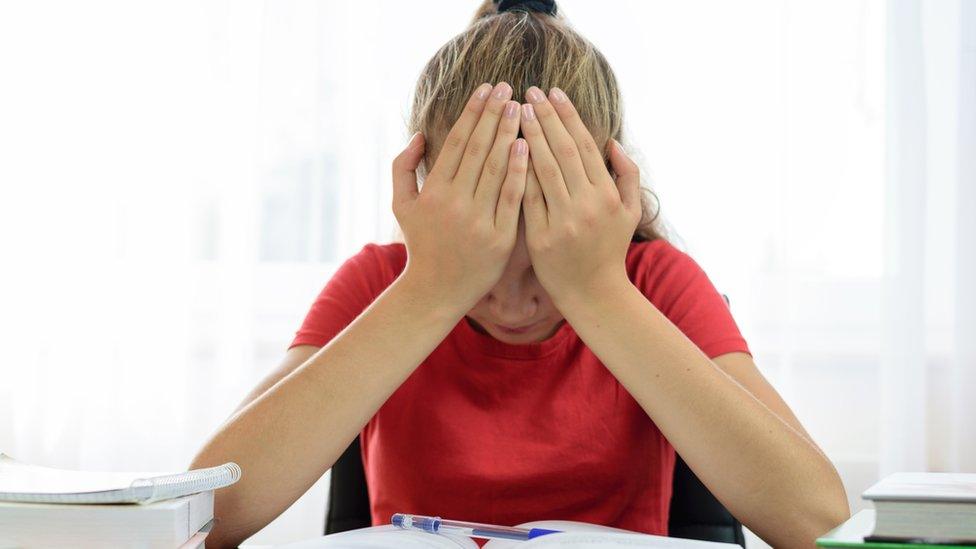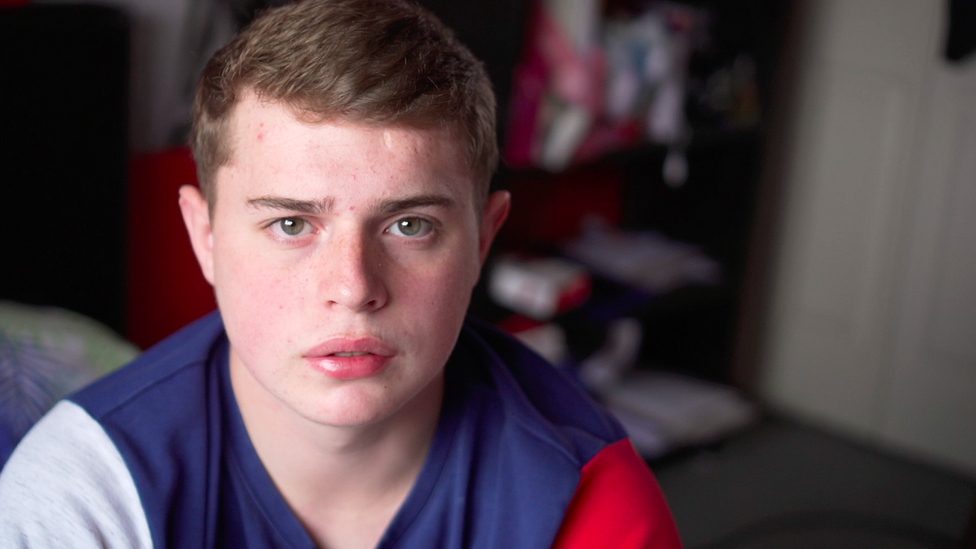'Teen's suicide bid in school isolation' sparks legal threat
- Published

The family accept the use of isolation for short periods, where it is to protect the safety and wellbeing of other pupils.
A mother who claims her daughter attempted suicide after being put in school isolation is threatening legal action against the government.
The 16-year-old girl at an academy in Kent is on the autistic spectrum, and allegedly spent every school day from mid-January to March in the room alone.
Her family's solicitors have written to the government demanding action and improvements to isolation guidelines.
The Department for Education said it was "considering the letter carefully".
No direct teaching
In the letter to the DfE, solicitors Simpson Millar claim the impact of the repeated time in isolation "caused her depression".
It added: "It also led to her taking an overdose while in the isolation room itself."
The family accept the use of isolation for short periods, where it is to protect the safety and wellbeing of other pupils.
However, this teenager spent weeks without any social interaction, and without direct teaching, the letter said.

Example of isolation booths used in hundreds of schools in England
Dan Rosenberg, of Simpson Millar, said isolation rooms and booths are being used as a "dumping ground" for children, particularly those with special educational needs.
He added: "What was originally a method for dealing with an immediate crisis in a classroom is now being used as a low cost solution for the long term management of pupils, to the detriment of their mental health and education."
"The current guidance is not fit for purpose, and as a result children are suffering."
'Cheerful and bubbly'
A second child, a boy in Nottinghamshire, also forms part of the potential case against the government.
The boy, who was diagnosed with ADHD, repeatedly "failed" the isolation booth treatment, which involved being tasked with staying silent all day, the letter said. He was then punished with further isolation.
As a result, he ended up in a "cycle of regular confinement" from the age of 11 to 16.
He went from a "cheerful and bubbly boy" to developing "severe" mental health problems. The boy is now 18.
The DfE has 14 days to respond to the letter "satisfactorily", before Simpson Millar take action to launch a judicial review into the matter.
- Published12 November 2018
